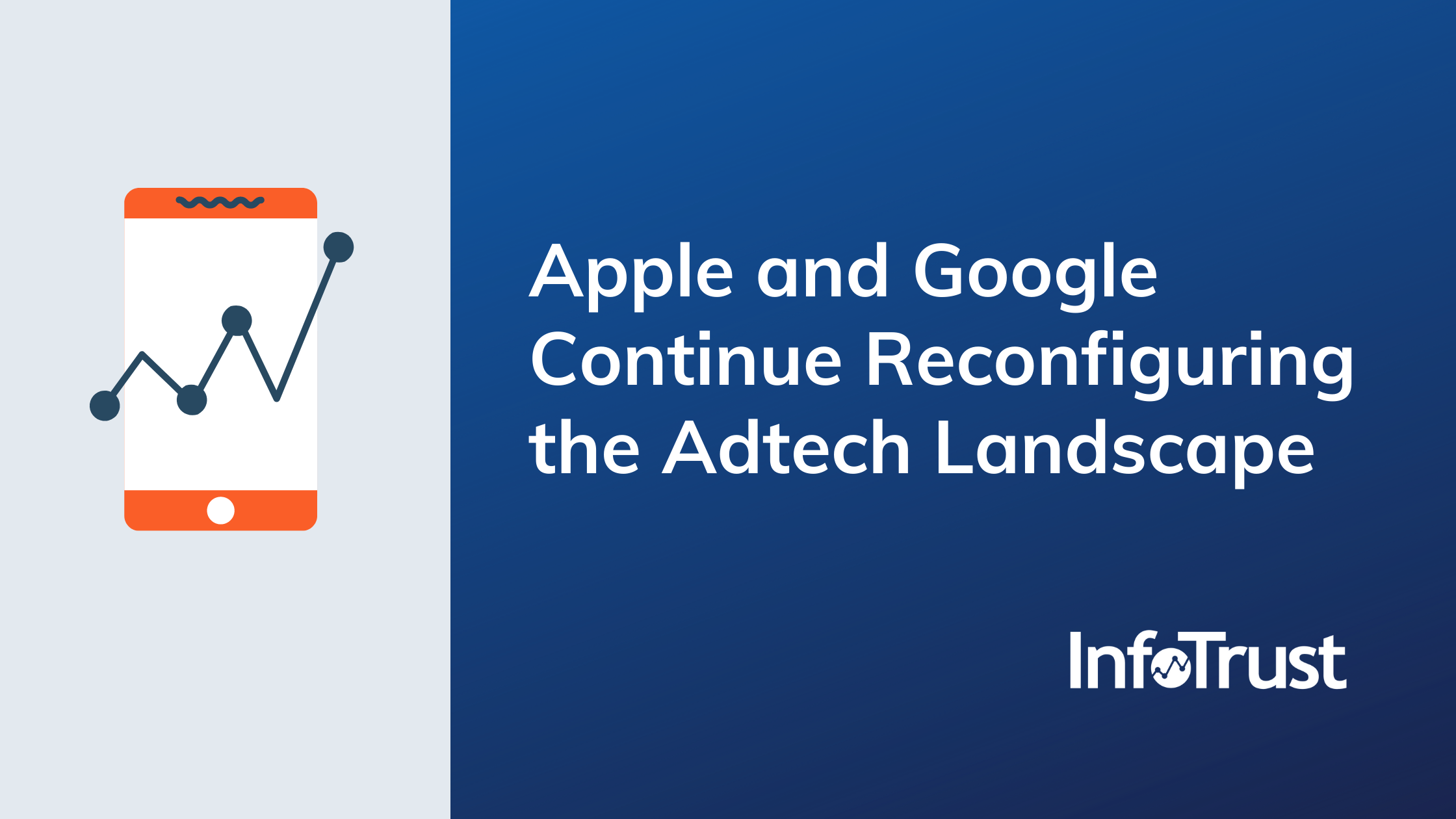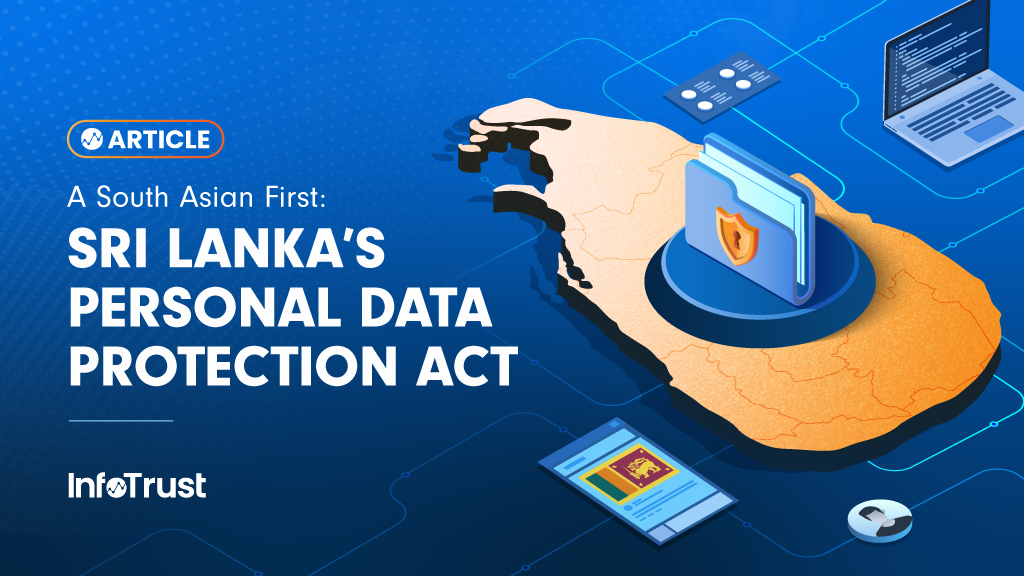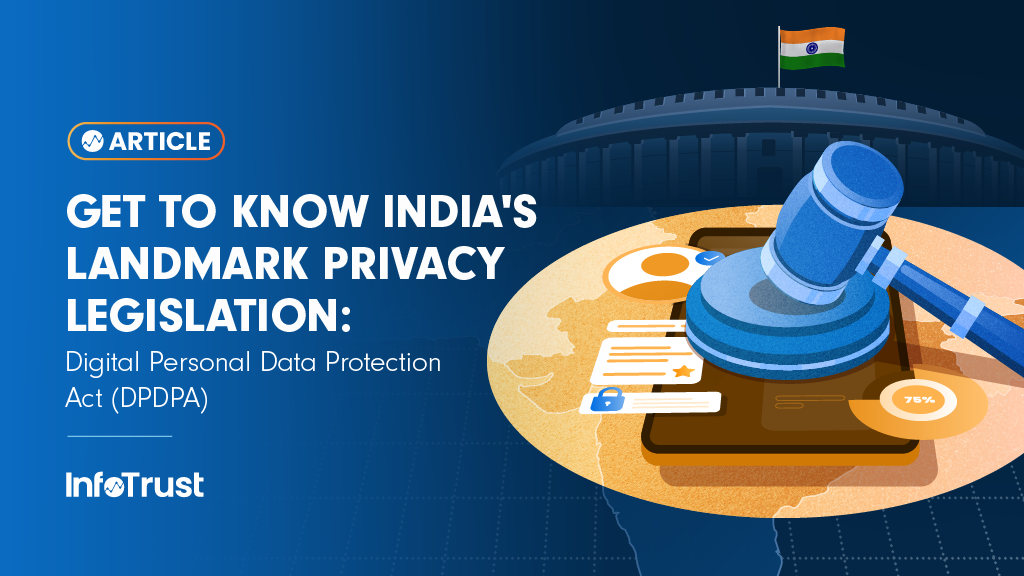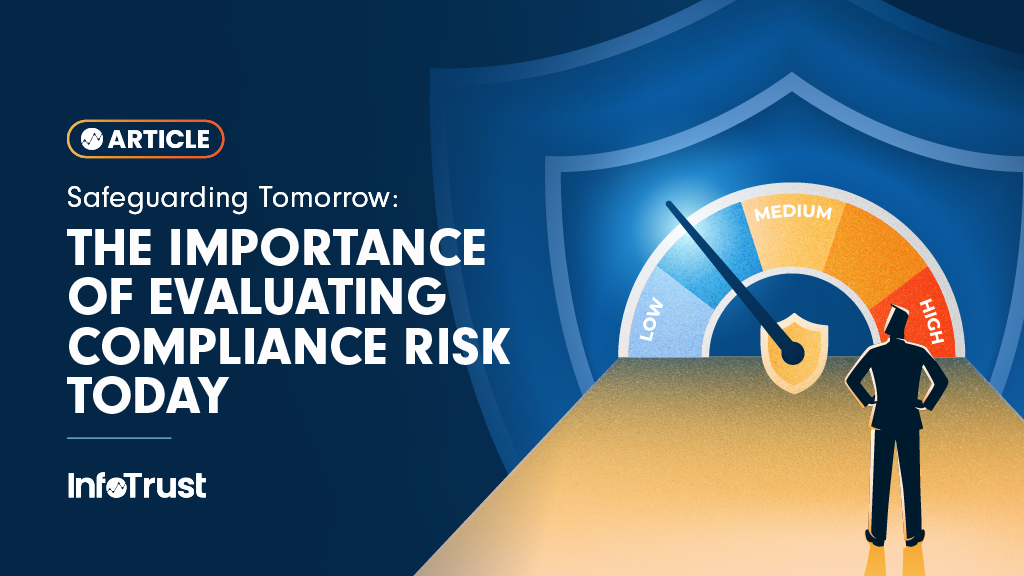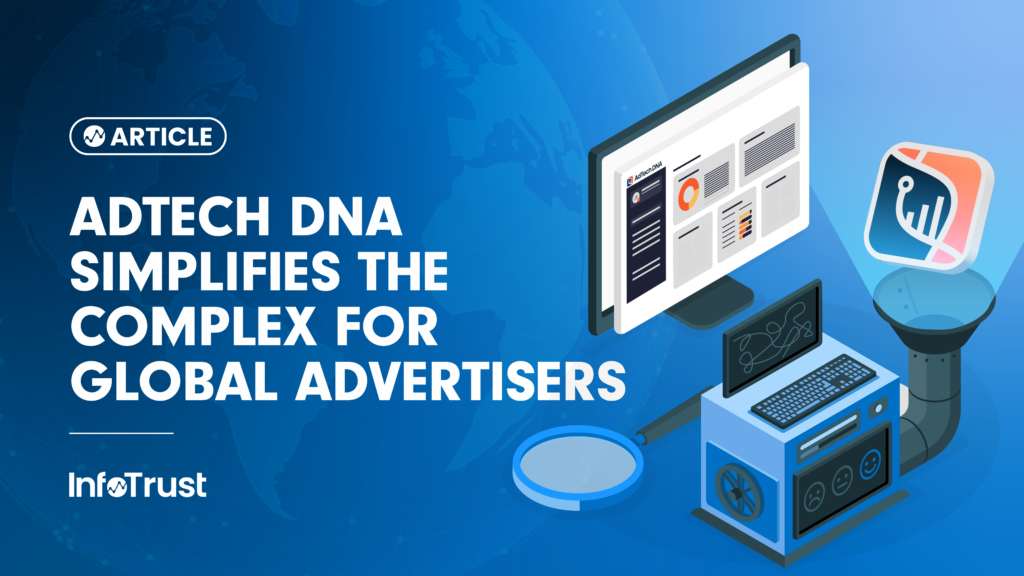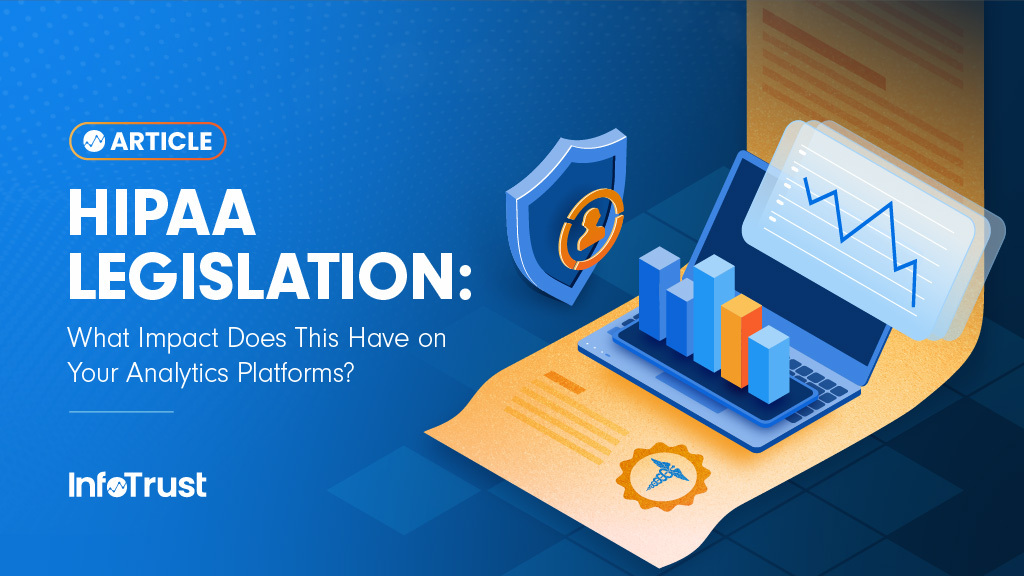With regulators taking a closer look at user privacy, and consumers becoming more concerned about the use of their personal data, Apple and Google are rolling out changes that will have the effect of limiting the ability of apps and websites to track users online and through mobile apps. As the two dominant operating systems from these tech giants release new features that allow individuals to block websites and apps from harvesting their data, organizations need to identify ways to respect customer privacy, while still marketing their products and services effectively.
Google Joins Apple to Opt-Out of Personalized Ads
Starting late 2021, Google said it will allow Android users to opt-out of being tracked by advertisers for personalized ads, following Apple’s rollout of its App Tracking Transparency, or ATT feature in iOS 14.5. Here is the policy update from Google’s support page:
“Starting in late 2021, when a user opts out of interest-based advertising or ads personalization, the advertising identifier will not be available. You will receive a string of zeros in place of the identifier”. “This change will be brought in phases, starting with apps running on Android 12 towards the end of 2021 and expanding to all apps running on devices that support Google Play in early 2022.”
Fortunately for app advertisers, the ad attribution can still be done for opt-out users via Google Play Install Referrer, which is a unique identifier that marketers can use to attribute an app install to a source.
Introduction of the App Set ID
Google introduced a new API for essential use cases such as analytics and fraud prevention called App Set ID. App Set ID is a unique ID that allows marketers to stitch together the customer usage or actions across a set of apps belonging to their organization. However, this identifier cannot be used for ads personalization or ads measurement. What it means is that marketers cannot connect it with the Android Ad Identifier or any personal data for advertising purposes. Furthermore, App Set ID is cleared automatically if the API hasn’t been accessed by the group of apps sharing the same ID for more than 13 months, or if an individual user decides to uninstall your organization’s apps on his or her devices.
Other upcoming security and policy changes that Android 12 will introduce:
A privacy dashboard that is aimed to help users keep track of apps that access sensitive permissions – According to Google’s mockups, users will have a simple and clear timeline view of the last 24-hour access to location, microphone, and camera.

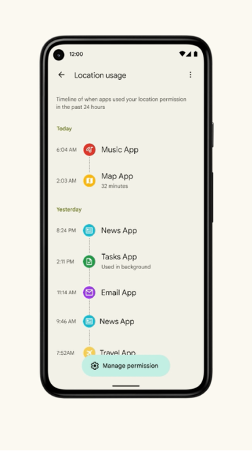
An indicator that lights up in the upper-right screen when the camera or microphone are being used – If any app tries to access the device’s camera or microphone in Android 12 without user consent, he or she will immediately see an indicator in the top-right corner of the status bar. This is quite similar to the recording indicator feature introduced in the iOS 14 update.

An option for sharing approximate location rather than precise location – Android has been offering users the choice to give specific permissions like access to location data to an app for one time only, while the app is in use, or not at all. With Android 12, users additionally get to control how accurate the location data they give is. Adding the ability to choose location data accuracy, alongside choosing when an app can access the data, puts more control over safety and privacy into the hands of end-users. The fact that it appears upon the access permission request puts that decision upfront rather than concealing it into often difficult-to-navigate menus.
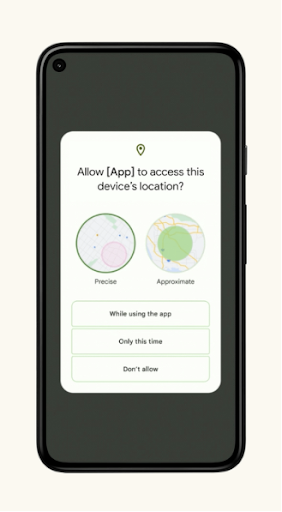
On the developer’s side of things, if an app is built with Android 12 in mind (Google calls that “targeting Android 12”) the developer must include support for coarse location (that’s the approximate location in the settings) and precise location if the app has a legitimate need for precise location. The app must work if the user only decides to grant permission for an approximate location only.
As Privacy Ramps Up, Apple Advances in its Privacy Leadership with iOS 15
At the company’s annual Worldwide Developer Conference (WWDC) keynote on June 7, 2021, Apple unveiled several key privacy-focused updates that will be included in the new iCloud and iOS 15 operating system. Here’s an overview of the three main features that will have the largest impact on your digital marketing strategy:
Mail privacy protection will eliminate the ability to accurately track open rates. As Apple describes: “…Mail Privacy Protection stops senders from using invisible pixels to collect information about the user. The new feature helps users prevent senders from knowing when they open an email, and masks their IP address so it can’t be linked to other online activity or used to determine their location.” Any subscriber who’s using the native Apple Mail application to read their email, be it on an iPhone, an iPad, or a Mac, is able to turn this feature on. Subscribers who use those devices but instead read their mail through Gmail, an Outlook application, or on their respective web views are not impacted. It’s also important for marketers to note that if their audience makeup is skewed toward Apple Mail users, their open rate will be over-inflated as more and more people upgrade to the latest OS versions and activate Mail Privacy Protection.
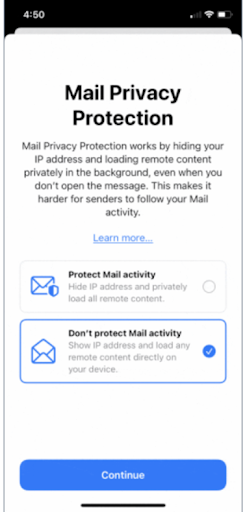
Private relay will hide the user’s IP address while browsing the web. iCloud Private Relay is part of iCloud+, which is what Apple now calls the paid iCloud subscription plans with more storage. With Private Relay, Apple provides multiple security proxies that change the route of user traffic and keep it private. It’s almost as if Private Relay is Apple’s VPN for iCloud subscribers. IPR allows iOS 15 Safari users to mask their IP address by sending traffic through multiple “internet relays.” With IP addresses becoming an unreliable indicator for audience targeting, some geo-targeted campaigns could be negatively impacted. In other words, if you have campaigns that rely on accurate targeting of a user’s physical location, users who are using IPR could either be inaccurately excluded from your geotargeting or inaccurately included.

Hide my email will allow users to mask their real email address with a fake one. Email marketing is typically the central key for brands to identify users and is, therefore, an important touchpoint in connecting a user with a website purchase. Apple’s Hide My Email feature will hinder this.
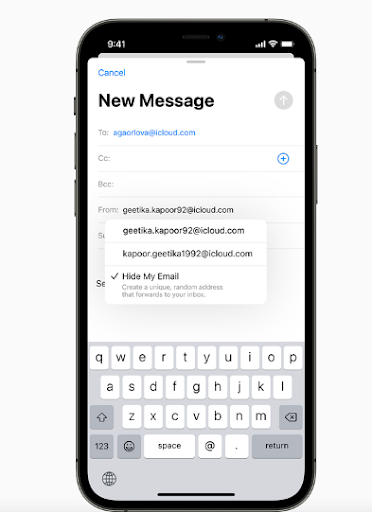
According to Apple, Hide My Email, “instantly generates unique, random email addresses that forward to your personal inbox—so you don’t have to share your real email address when filling out a form.” So, people using Hide My Email will still get your emails. However, you may not be able to tie email behavior to purchases if different email addresses are used. For example, someone can sign up for your newsletter with Hide My Email but then later make a purchase using their real email address. Similarly, if you use email addresses as the account record, this may cause issues for your call centers or in-store teams. It’s likely customers will reference their real email address when asked, meaning you won’t be able to find their account if it’s under their fake email address.
Apple Introduces ‘App Privacy Report’ Feature in iOS 15.2 Beta
This new privacy feature offers an overview of how many times apps use the granted access to users’ location, camera, microphone, photos, and contacts in the last seven days. In addition, users can also find out whom their data may be shared with by seeing all third-party domains an app is contacting.
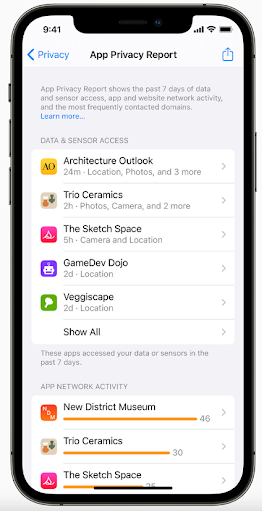
In conclusion, we are now living in a privacy-first world and as Apple and Google enact their privacy changes, brands and marketers who anticipate the impacts of these trends will be poised to gain ground in their marketplace. If you’d like further clarifications on the new privacy protection functionalities introduced by Apple and Google or want to discuss how these changes will impact your specific marketing efforts, give us a shout!
